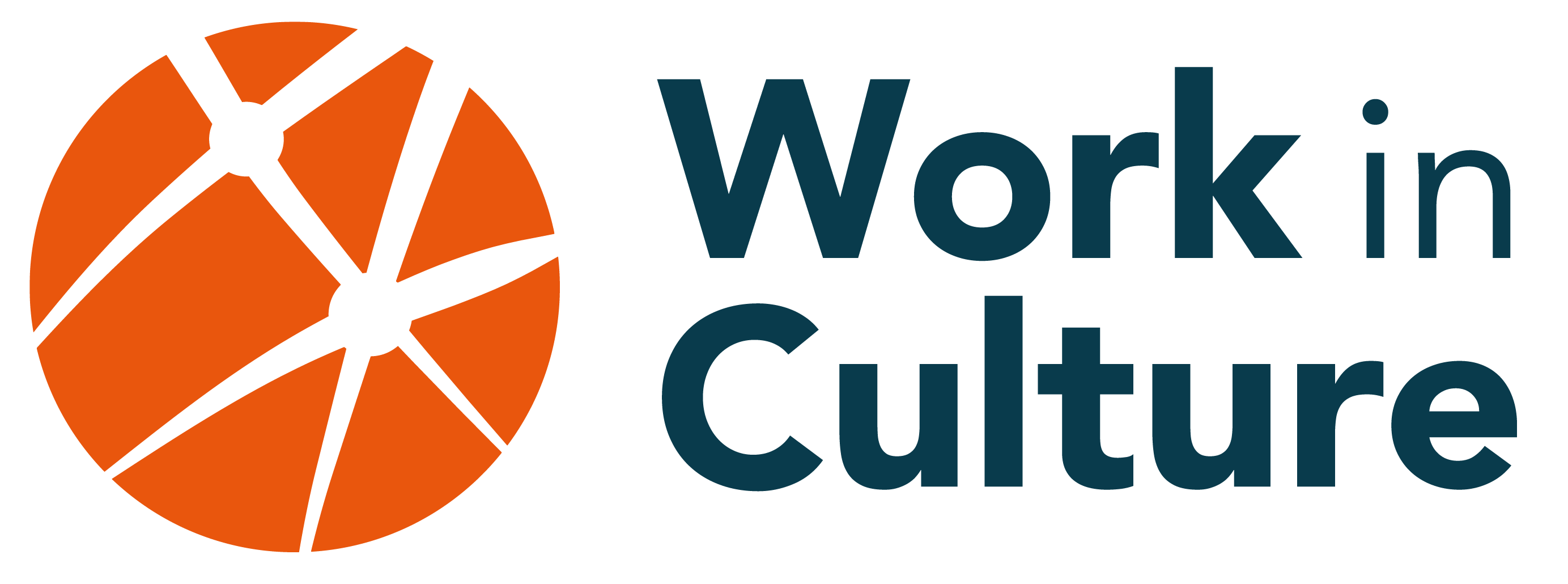Vision
Our vision is a thriving, vibrant, and equitable arts, culture, and creative community.
Mission
Our mission is to advance the careers of artists, creatives, and cultural workers from diverse lived experiences, and support the organizations that engage them, through entrepreneurial and business skills development and innovative research.
Values
As an organization:
- We are passionate about the vital contribution of arts, culture and creative industries to Canadian society.
- We celebrate the artistry, creativity and diversity in our sector.
- We practice collaboration, innovation and inclusion.
Diversity, Equity & Inclusion
Work in Culture is committed to diversity, equity, and inclusion based on community best practices and self-reflection. We will continuously improve and implement strategies, policies, and practices through an ongoing process of evaluation and change.
We believe that every person has a right to equal treatment with respect to Work in Culture’s employment and services, without discrimination or harassment because of one or more of the following prohibited grounds included in the Ontario Human Rights Code:
- Age
- Ancestry, colour, race
- Citizenship
- Ethnic origin
- Place of origin
- Creed
- Disability
- Family status
- Marital status (including single status)
- Gender identity, gender expression
- Receipt of public assistance (in housing only)
- Record of offences (in employment only)
- Sex (including pregnancy and breastfeeding)
- Sexual orientation.
An inclusive approach will be thoroughly integrated into the ongoing activities, operations and relationships of the organization. WIC recognizes that there are systems in place within our sector and beyond that have created complex barriers and inequitable experiences for underrepresented individuals and groups. WIC is committed to learning how to identify and remove these barriers and also to unlearning practices, beliefs, and behaviours that affect our collective ability to advance diversity, inclusion, and equity in all aspects of the work we do. As part of our ongoing capacity building as an organization we are committed to ensuring all staff and volunteers have undergone training on the following topics:
- Diversity, Inclusion, & Equity
- Anti-racism and Anti-Black racism
- Anti-discrimination
- Accessibility
- Anti-oppression & Unconscious Bias
We are committed to critically reflecting on our diversity, inclusion, and equity efforts interpersonally, and as an organization on a regular basis. WIC will make every effort to make its volunteer pool and employee workforce representative and reflective of the communities in which its services are provided. WIC will endeavour to ensure that the workplace, all policies, procedures and practices, are free of deliberate or unintentional (systemic) barriers so that no one is disadvantaged.
Acknowledging and Respecting Traditional Territories
Work in Culture is grateful to have the opportunity to collaborate with and support cultural workers in various traditional territories across Ontario.
Though our office is located on land that is the traditional territory of the Haudenosaunee, and most recently, the territory of the Mississaugas of the New Credit First Nation, we deliver programs and partner with centres that are located on different traditional territories. And as the Territory which our office is located on in Toronto, was the subject of the Dish With One Spoon Wampum Belt Covenant, an agreement between the Iroquois Confederacy and the Ojibwe and allied nations to peaceably share and care for the resources around the Great Lakes, we are committed to continue those sentiments when delivering workshops and connecting with the arts and culture communities across Ontario.
In addition to acknowledging and respecting the territories that we visit we are committed to making our partnership pool, employee workforce, and program instructors representative and reflective of the communities in which we serve, taking into account the statistic that one in five Indigenous people in Canada live in Ontario (StatsCan 2016).

